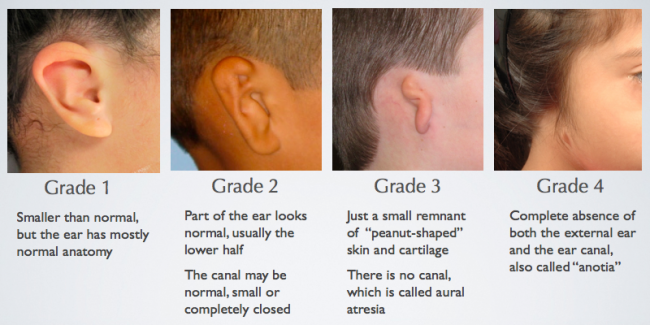
atresia [uh-tree-zhuh, -zhee-uh] ExamplesWord Origin noun Medicine/Medical.
- the congenital absence, or the pathological closure, of an opening, passage, or cavity.
Origin of atresia 1800–10; New Latin Greek a- a-6 + três(is) perforation + -ia -ia Related formsa·tre·sic [uh-tree-zik, -sik] /əˈtri zɪk, -sɪk/, a·tret·ic [uh-tret-ik] /əˈtrɛt ɪk/, adjective Examples from the Web for atresia Historical Examples of atresia
Perhaps in some cases of atresia there may be a secondary obliteration of a previously formed opening.
The Anatomy of the Human Peritoneum and Abdominal Cavity
George. S. Huntington
Atresia was in no instance great enough to account for the complete loss of enlarged follicles.
Natural History of the Ornate Box Turtle, Terrapene ornata ornata Agassiz
John M. Legler
Atresia etiam consequitur vulnera et inflammationes morborum, ut diphtheritis et scarlatina.
Austin Malley
Sometimes there is a complete closure or atresia of the lower part of the colon.
William S. Sadler
British Dictionary definitions for atresia atresia noun
- absence of or unnatural narrowing of a body channel
Word Origin for atresia C19: New Latin, from Greek atrētos not perforated Word Origin and History for atresia n.
“occlusion of a natural passage in the body,” 1807, from Modern Latin atresia, from Greek atretos “not perforated,” from a-, privative prefix, + tresis “perforation,” from PIE *tere- “to rub, turn,” with derivatives referring to boring and drilling (see throw (v.)).
atresia in Medicine atresia [ə-trē′zhə, -zhē-ə] n.
- The congenital absence or closure of a normal body orifice or tubular passage such as the anus, intestine, or external ear canal.
- The degeneration and resorption of one or more ovarian follicles before maturation.
 Liberal Dictionary English Dictionary
Liberal Dictionary English Dictionary